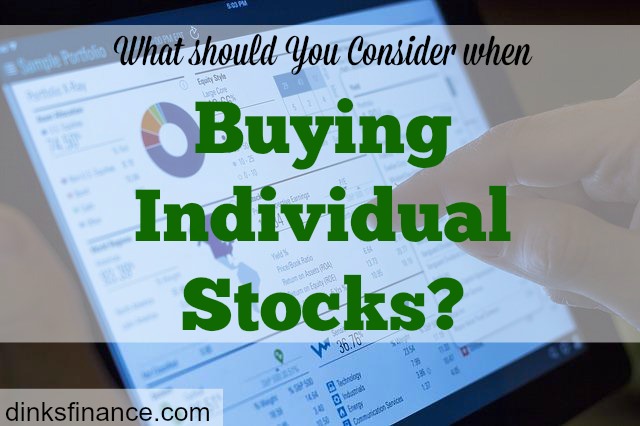The answer: a lot.
If you are moving any kind of serious money (e.g. more than $10,000) in the stock market on a single trade you’ll want to do some thorough due diligence.
At a minimum:
1. Do some field research: Go to the company’s headquarters or get on the phone and start asking some questions. Good stock pickers have a tendency to do this. Buffett did it early in his career, so did Peter Lynch and Jim Cramer has done this at various stages.
2. Put earnings under a microscope: Pull the company’s 10K for the last two years. The company’s 10-K is an annual report which is required by the Securities and Exchange (SEC) commission. It details the company’s finances, corporate structural arrangements, and governance. You’ll also want to pay special attention to the composition of the company’s earnings. They should have real cash flow growth. Accounting tricks, like changing the number of shares outstanding or engaging in funky deals to inflate earnings, should be large red flags. What you are looking for is real earnings. That is the company sells burgers, you’ll want more burgers sold, if they make washing machines, you’ll want to see that they sold more washing machines.
3. Evaluate debt: A modest amount of corporate debt can have a beneficial impact on corporate tax structure, but too much of it tends to have a negative impact on corporate cash flow (and accordingly your profit) and it tends to make bondholders nervous. So in general less debt is favorable.
4. Account for the larger market: If the larger market is volatile at the time you are considering a purchase, don’t buy. Your potential purchase can be making money hand over fist, but if the market is behaving like schizophrenic child, you’ve got that much extra risk to deal with.
5. Consider macroeconomic trends: Demand is driven by trends in what people are willing to buy, and what they aren’t. For example, the increasing trend towards digital content caused Blockbuster to go out of business and left Netflix on top. What you don’t want is a company that’s on the wrong end of history.
Things you’ll need.
1. A finance dictionary: A finance dictionary is a must whether you pick up an actual book or find a good site. Advanced accounting can be esoteric so you’ll need a resource to help you navigate through the terminology? For example how many of you really know what paid in capital or last-in-first -out-means? Get a dictionary.
2. Access to quality research: A well-researched piece can help you quickly sort out good companies from cruddy ones. Research outfits like valueline or Standard and Poor’s are good ones. Read the overview reports. If the company looks like a dog at first review, it probably is.
3. Spreadsheet software: You’ll need this to make lists, prioritize and sort your investing prospects. They are also crazy useful for making projections or deciding between complex alternatives.
4. Guts: Investing in the stock market, particularly in individual stocks, is risky and takes a certain mindset to manage properly. You can lose all of your money. For real. All of it. It happens to the best of us, myself included. For example at one point I had 100 shares of Frontline, Ltd. The company went from $34.00 to $2.00 on weakness in the tanker market. I rode it all the way down – that’s $3,400 I won’t be seeing any time soon.
Finally, investing in individual stocks can be tremendously rewarding. Many members of the Forbes 500 made it on the list because of successful speculation in stocks. More importantly IRS records show that as individual net worth increases, so does the relative percentage of one’s wealth which is held in equity. What does this mean? It means owning stock can make you rich.
Best,
James



On (4) stop loss orders may be appropriate if you maintain concentrated positions. I don’t use them because I scatter small holdings around each of my themes, and I dollar cost average if the price moves but the situation looks the same to me.
My perception is that trading your way to riches on the stock market is rarer than earning that same amount by starting your own business or being discovered in Hollywood. If you think “passive investing” means that no work is needed and profits simply roll in, you’re better off picking a widely diversified ETF.
Good insight! In my experience, too many retail investors are nowhere near this level of research when they’re investing in individual stocks. They might get lucky and pick a winner, but more often than not they do not.
Great post. We’re thinking of buying our first individual stocks, and we’ve been reading a ton about it. The taking a risk is the hardest part for me, but without it, there’s nothing to gain.
Free,
Thanks for the note. I think you might consider concentrating your funds. I am presuming that you have retirement mutual funds and probably own your own home. If thats the case, you already have a high level of diversity. If you maintain diversity in your stocks, you’ll never quite get to where you want to me. That is, unless you concentrate, you’ll never get rich.
Thx,
James
John,
Good point. I go back and forth on this. My current thinking is that if you’re not willing to invest the time into researching the stock, don’t bother. Just get a good quality mutual fund or put your cash into savings. Doing well in stocks requires beating the bushes a little bit.
Best,
James
Cat, You gotta be in the game to make any money. Consider taking a more limited position if you are worried.